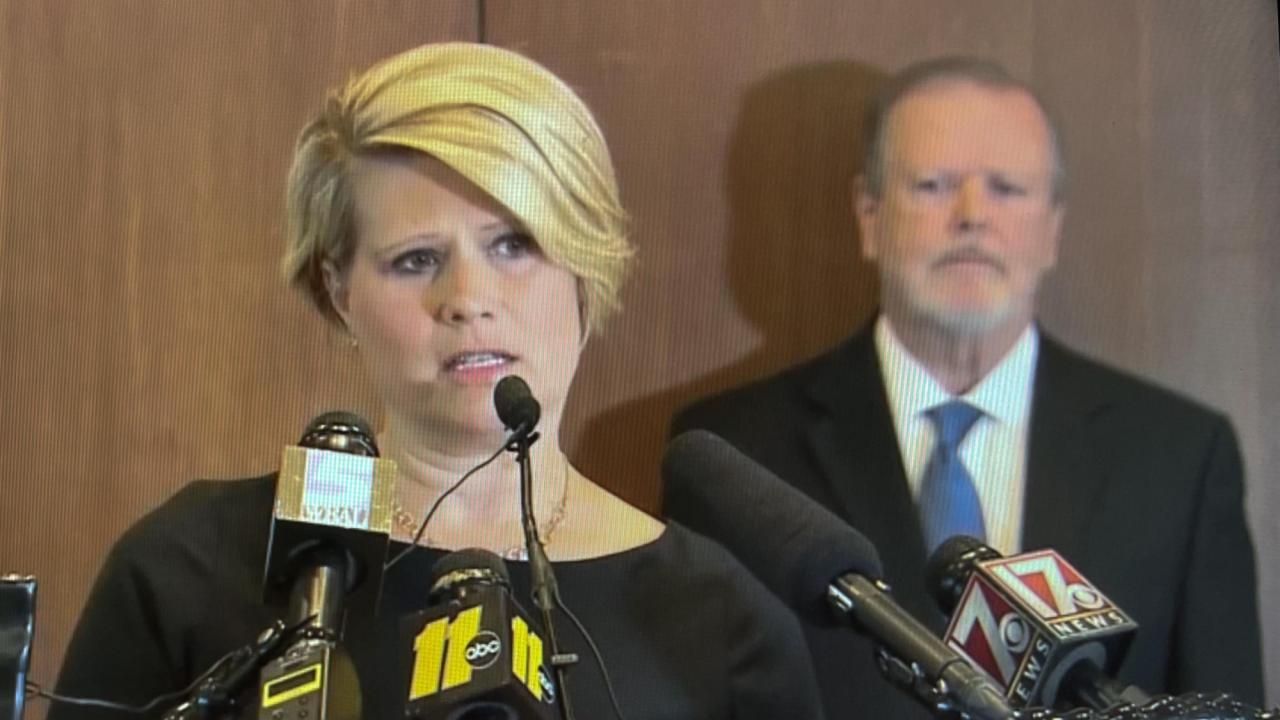How should NC schools be graded? State superintendent is asking for input

North Carolina Superintendent Catherine Truitt wants your input on how to better measure the success of the state’s K-12 public schools.
The state Department of Public Instruction designed a survey alongside EducationNC — a nonprofit news and commentary website devoted to education.
The survey, which can be accessed here, closes at 5 p.m. Oct. 10.
As it stands now, the state uses an A-F grading system that depends mostly on student test scores and, to a much smaller extent, student growth on those tests.
Some form of school grading is required under the federal Every Student Succeeds Act, though states have varying ways of measuring school performance.
North Carolina’s method is outlined in state statute, set by the General Assembly starting in the 2013-14 school year. Truitt plans to ask lawmakers to eventually change the statute.
A North Carolina Department of Public Instruction news release Thursday states, “a growing consensus has led many to believe that the current model does not accurately reflect all aspects of school quality because it puts too much weight on student achievement as determined by high-stakes testing.”
It does not do enough to illustrate how schools are preparing students for life after graduation, Truitt has said, such as through career education or college course opportunities.
On Sept. 1, the state released the latest school performance grades based on spring 2022 standardized tests, showing a decline in performance since before the COVID-19 pandemic and a rise in low-performing schools.
Critics and researchers have noted the test scores correlate with students’ family incomes, suggesting systemic challenges rather than a pure reflection of learning.
Truitt has been arguing for a change in school performance grades since long before the spring 2022 tests were administered, publishing it as a stated goal in her “Operation Polaris” education plan in summer 2021. Truitt contends adding more metrics to the school accountability measure would improve schools, because schools use the accountability measure to guide instruction.
Operation Polaris also calls for a student report card that reflects a “sound, basic education” — a proposal mirrored in the comprehensive remedial plan in the long-running education adequacy lawsuit known as Leandro. The state and plaintiffs who sued the state have agreed to that plan. The plan also calls for including measures related to providing a “sound basic education” in a revised school accountability measure.
The survey asks people to provide “yes,” “no,” or “unsure” responses to several prompts on how schools should be measured. Then, it provides a space for no more than 20 words to suggest additional ideas state officials should consider.
Truitt’s working group on redefining school performance grades met for the first time recently, in a private meeting facilitated by The National Center for the Improvement of Educational Assessment. The group consists of school administrators from across the state, higher education leaders and education nonprofit leaders.
Survey results will be posted publicly.











